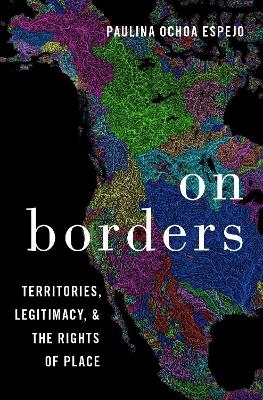
On Borders
Oxford University Press Inc (Verlag)
978-0-19-007420-3 (ISBN)
Today people think of borders as an island's shores. Just as beaches delimit a castaway's realm, so borders define the edges of a territory, occupied by a unified people, to whom the land legitimately belongs. Hence a territory is legitimate only if it belongs to a people unified by a civic identity. Sadly, this Desert Island Model of territorial politics forces us to choose. If we want territories, then we can either have democratic legitimacy, or inclusion of different civic identities--but not both. The resulting politics creates mass xenophobia, migrant-bashing, hoarding of natural resources, and border walls.
To escape all this, On Borders presents an alternative model. Drawing on an intellectual tradition concerned with how land and climate shape institutions, it argues that we should not see territories as pieces of property owned by identity groups. Instead, we should see them as watersheds: as interconnected systems where institutions, people, the biota, and the land together create overlapping civic duties and relations, what the book calls place-specific duties.
This Watershed Model argues that borders are justified when they allow us to fulfill those duties; that border-control rights spring from internationally-agreed conventions--not from internal legitimacy; that borders should be governed cooperatively by the neighboring states and the states system; and that border redrawing should be done with environmental conservation in mind. The book explores how this model undoes the exclusionary politics of desert islands.
Paulina Ochoa Espejo is Associate Professor of Political Science at Haverford College. She is the author of The Time of Popular Sovereignty: Process and the Democratic State and co-editor of The Oxford Handbook of Populism.
Preface
Acknowledgments
1. Introduction
Part I: Taking Identity Too Seriously: Against the Desert Island Model of Territorial Politics
2. The Desert Island Model of Territorial Politics
3. What Do Borders Divide? Peoples, Places, Jurisdictions
4. Democratic Legitimacy and the Vicious Circle of People and Territory
5. Natural Borders: From the Natural Boundaries of States to Ecological Accounts of Territory
Part II: Taking Place Seriously: For the Watershed Model of Territorial Politics
6. The Topian Tradition: A Forgotten Alternative to Utopianism
7. How Place-Specific Duties Make Borders Morally Relevant
8. The Watershed: A (Not So) New Model for Territories and Border Placement
Part III: The Morality of Border Politics in the Real World: Applying the Watershed Model
9. Grounds of Border Control and Shared Border Governance
10. Immigration: Rights Based on Presence Rather Than Identity
11. Sharing Ecosystems: Rivers as an Example of Transborder Resource Use and Cooperation
12. What is Wrong with Border Walls?
Envoi
Bibliography
Index
| Erscheinungsdatum | 09.07.2020 |
|---|---|
| Verlagsort | New York |
| Sprache | englisch |
| Maße | 231 x 155 mm |
| Gewicht | 544 g |
| Themenwelt | Geisteswissenschaften ► Philosophie |
| Sozialwissenschaften ► Politik / Verwaltung ► Europäische / Internationale Politik | |
| Sozialwissenschaften ► Politik / Verwaltung ► Politische Theorie | |
| ISBN-10 | 0-19-007420-5 / 0190074205 |
| ISBN-13 | 978-0-19-007420-3 / 9780190074203 |
| Zustand | Neuware |
| Informationen gemäß Produktsicherheitsverordnung (GPSR) | |
| Haben Sie eine Frage zum Produkt? |
aus dem Bereich


